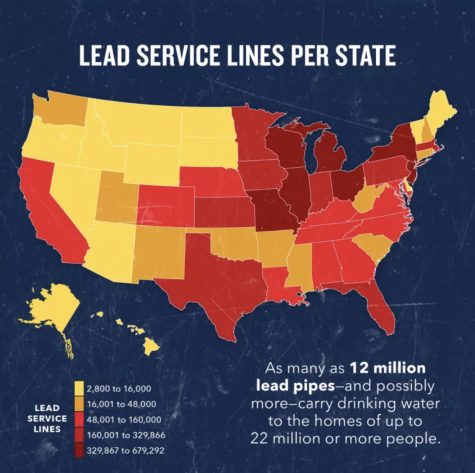A National Tragedy: Ruth Bader Ginsburg passes away
The pioneer for women’s rights, cultural icon and Supreme Court Justice Ruth Bader Ginsberg passed away Sept. 18 from cancer complications.
Ginsburg began her legal career as a law clerk in one of New York’s district courts in 1959. She then worked for the American Civil Liberties Union (ACLU) in the 1970’s fighting sex discrimination cases as well as creating the Women’s Rights Project where she argued for six landmark gender equality cases. Ginsberg also served on the general counsel and the National Board of Directors for the ACLU. She taught law at Rutgers’ and Columbia’s law schools during that time and was the first tenured female law professor. Ginsberg was then placed on the United States Court of Appeals in 1980 by President Jimmy Carter, and in 1993 she was confirmed as a supreme court justice by President Bill Clinton where she went on to serve for 27 years. Ginsberg voted in landmark court cases like the Affordable Care Act (ACA) and Roe v. Wade.
Ginsberg’s death leaves an opening in the Supreme Court that will be filled by the nominee of President Trump. On Sept. 26 Trump nominated Amy Coney Barrett who is a circuit judge on the United States Court of Appeals. Barrett studied at Notre Dame’s law school, where she now teaches, and was a clerk for Justice Antonin Scalia. She identifies as a conservative and believes the Constitution should be interpreted the same way as when it was written and that preceding legal cases should not strictly bind judges. Barrett strongly opposes Roe v. Wade, wanting to end its “barbaric legacy”, and if she’s confirmed, she will likely vote to overturn the ACA as well.
“I don’t agree with her values because she speaks a lot about faith and religion in her politics. Even though I’m a Christian, I believe heavily in separation of church and state, so her phrasing makes me uncomfortable. Among this, she argues for invalidating the Affordable Care Act, which I support fully,” senior Julia Barton said.
“Amy Coney Barrett is one of the most qualified women in the United States to serve on the Supreme Court. She will strictly interpret the Constitution and vote to uphold the American way of life…Republican or Democrat, she will rule for America and by our Constitution, and we need nothing more than support for America right now,” senior Seth Perkins said.
Senate Majority Leader Mitch McConnell planned to confirm Barrett as a justice before the election to have a strong conservative majority in the Supreme Court. Prior to Ginsberg’s death, the political balance on the Supreme Court was 5-4 with a conservative leaning, but if Barrett is confirmed, the balance would be 6-3. This outcome was likely because of the Republican majority Senate, but with many prominent Republican senators having coronavirus, the Senate vote may not happen before the election on Nov. 3. Senators are required to cast their votes in person, so voting would be postponed until it is safe for the senators to return to work.
In 2016 when Justice Scalia died, many Republicans did not support President Obama nominating a new supreme court justice during an election year with Republicans in the Senate saying that they would not approve of any of Obama’s nominees. Scalia was the strongest conservative on the court at the time, and Republicans feared that Obama would choose a very liberal candidate for his replacement. Many of the same Republicans that opposed Obama’s nominee are in strong support of President Trump being able to choose a nominee.
“Her nomination is the responsibility of the president, under oath, of the United States. The United States Constitution determines how we govern our people, rather than dying wishes of great Justices,” Perkins said.
This sparked controversy from democrats because a strong conservative may replace one of the most liberal judges on the court. A supreme court justice is a lifelong position, so Barrett’s confirmation would create a conservative majority that could last for decades.
“Whether or not you agree with her values or not, I don’t think President Trump should have picked a justice. Because this is a lifelong position, the president who is elected this November deserves to make that decision as a representative of the country’s values,” Barton said.
Barrett’s confirmation hearings with the Senate Judiciary Committee began Oct. 12, and the committee will have its first vote Oct. 23. If the committee votes in favor of Barrett, the full Senate will vote the week of Oct. 26.

Maggie Estes is a senior news writer, and it is her second year on the staff. She started writing for news during her junior year and wrote about current...












